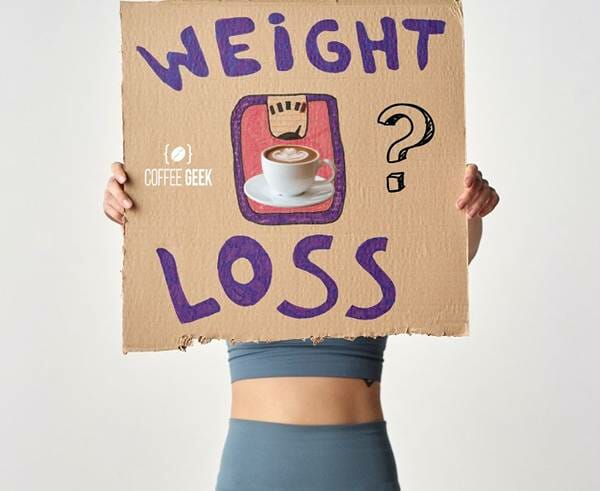Drinking coffee is a daily ritual for many people around the world, with some reaching for a cup first thing in the morning on an empty stomach.
However, its impact on weight loss is frequently debated, especially when consumed without any accompanying food.
In this article, we’ll explore does drinking coffee on an empty stomach help you lose weight and the associated potential health risks and benefits.
Coffee is known for its stimulating effect on the nervous system, so when you drink coffee it can help improve alertness and cognitive function.
Some research has suggested that coffee can play a positive role in weight loss due to its appetite-regulating properties and ability to kick-start the metabolism.
However, other studies have raised concerns about the potential impact of consuming coffee on an empty stomach, such as an increase in stress hormone levels and impaired blood sugar control.
Understanding these factors can help you make an informed decision about your coffee consumption habits for optimal weight loss results.
Does Drinking Coffee On An Empty Stomach Help You Lose Weight – Key Takeaways
- Drinking coffee on an empty stomach may have both positive and negative effects on weight loss.
- Consider potential health risks and benefits when deciding on your morning coffee routine.
- Opt for healthy coffee consumption habits for the best weight loss results.
Health Risks and Benefits of Drinking Coffee on an Empty Stomach
Digestive Issues

Drinking coffee on an empty stomach can lead to several other digestive problems and issues.
It has been found that when you drink coffee, even one cup, can increase the release of hydrochloric acid inside the digestive system.
This can cause heartburn, acid reflux, and might worsen symptoms for individuals with ulcers or other existing gastrointestinal conditions.
Additionally, coffee can speed up the colon’s activity and induce a bowel movement.
Impact on Blood Sugar Control
A small study in the British Journal of Nutrition found that drinking black coffee on an empty stomach first thing in the morning impaired blood sugar control among participants.
This can lead to an increased risk of metabolic conditions such as diabetes and heart disease.
It is essential for you to be aware of this potential issue and consider having your coffee with a balanced meal to avoid such risks.
Increased Anxiety Levels

Coffee consumption can elevate anxiety and cortisol levels further, especially when consumed on an empty stomach.
The caffeine in coffee stimulates cortisol production, which is a stress hormone.
This can lead to increased heart rate, nervousness, and jitteriness, particularly if you’re sensitive to caffeine.
Furthermore, excessive intake of caffeine may cause difficulty in concentrating and can even result in panic attacks for individuals prone to anxiety disorders.
Cardiovascular Concerns
Drinking too much coffee on an empty stomach may have some serious cardiovascular health concerns.
A high intake of unfiltered coffee and too much caffeine have been associated with a mild increase in cholesterol levels.
This cholesterol increase can contribute to increased cardiovascular risk, particularly for those with pre-existing heart conditions.
To minimize these risks, consider cutting back on your coffee intake or switching to filtered coffee while ensuring you have a meal before drinking your coffee.
Remember to always listen to your body when consuming coffees and be mindful of any adverse effects it may cause.
Consult with a healthcare professional if you have concerns about your coffee habits or experience any of the mentioned health risks.
The Effects of Coffee on Weight Loss
Coffee has garnered a lot of attention for its potential role in losing weight, but it’s essential to understand the specific ways it can affect your body and weight management.
Here, we’ll examine the different aspects of coffee that contribute to loss weight, such as caffeine’s impact on metabolism, appetite suppression, fat metabolism, energy boost, and exercise performance.

Caffeine and Metabolism
Caffeine, the primary stimulant in coffee, is known to boost your metabolism, helping you burn more calories throughout the day.
It does this by increasing your resting metabolic rate (RMR), which is the number of calories your body burns while at rest.
A higher RMR means your body is burning more calories, even when you’re not engaging in physical activity.
Appetite Suppression
Drinking coffee might help you feel less hungry, which could lead to reduced calorie intake.
Some studies suggest that coffee can act as an appetite suppressant for some people, especially when consumed up to four hours before a meal, decreasing energy intake.
Keep in mind, though, that the effects of coffee on appetite can vary between individuals and might not be significant enough to cause loss weight on its own.
Fat Burning
Caffeine can also help you lose weight by promoting fat metabolism.
It does this by increasing the levels of adrenaline in your bloodstream, which signals your body to break down stored fat and use it for energy.
This process, called lipolysis, can help your body burn calories from fat as a fuel source, making it easier to shed those unwanted pounds.
Energy Boost and Exercise Performance
One of the most well-known effects of caffeine is that it provides a noticeable energy boost.
This increase in energy can help you feel more alert and motivated during your workouts, leading to higher-intensity exercise and potentially more calories burned.
In addition, caffeine has been shown to enhance exercise performance in various sports and activities, potentially helping you get more out of your exercise routine and improve your overall fitness.
Overall, incorporating coffee into your weight loss plan may offer several benefits.
By understanding how caffeine and other components of coffee interact with other food in your body, you can make informed decisions about when and how to include this popular beverage in your daily routine.
Keep in mind, though, that no single food or beverage is a magic bullet for weight loss – a balanced healthy diet and regular exercise are essential in managing your weight and overall health benefits.
Healthy Ways to Consume Coffee for Weight Loss
Limit Sugar and Additives
To maximize the potential weight loss benefits of coffee, it’s essential to limit your sugar and additive intake.
Opting for natural sweeteners like stevia or spices like cinnamon can help add flavor without adding extra calories.
Avoid using excessive cream or flavored syrups, as these can lead to weight gain and negate the benefits of drinking coffee.
Black Coffee versus Coffee Drinks with Milk and Sweeteners

Plain black coffee is low in calories, with less than 5 calories per 8-ounce cup. However, once milk and sweeteners are added, these numbers can increase dramatically.
For example, some popular Starbucks coffee drinks can have upward of 300 calories, which is not conducive to a weight loss plan.
To enhance the benefits of drinking coffee, stick to black coffee or add minimal amounts of healthier alternatives like unsweetened almond milk.
Hydration and Diuretic Effects
Coffee’s diuretic effect can lead to increased water loss, but it doesn’t mean you should replace water with coffee.
Staying properly hydrated is vital for your overall health and weight loss journey.
Make sure to drink plenty of water in conjunction with your coffee consumption to help balance the diuretic effects and maintain adequate hydration levels.
Moderation and Determining the Right Caffeine Intake
While drinking coffee may offer some health benefits and potential weight loss, it’s essential to find the right balance in your caffeine intake.
Overconsumption of caffeine can lead to restlessness, headaches, and even an increased risk for heart disease, high blood pressure, and bone loss.
Most experts agree that you should cap your caffeine intake at around 400 mg per day — the equivalent of 4-5 cups of coffee.
Finding the right balance of coffee consumption and personal factors, such as genetics and sensitivity to caffeine, will help you enjoy the potential weight loss benefits without negative side effects.
If you feel jittery or have trouble sleeping after drinking coffee, consider reducing your intake or switching to a lower-caffeine alternative like green tea.
When consuming coffee as part of your weight loss strategy, remember to keep your intake in moderation, limit sugar and additives, and maintain proper hydration.
By incorporating these tips, you can potentially enhance the fat-burning benefits of your morning cup of joe and support your weight loss journey.
Learn more on probiotics and coffee here.
Frequently Asked Questions
Can drink coffee without food aid weight loss?
Yes, coffee can potentially aid in weight loss when consumed without food. It has been that excessive coffee intake found to act as an appetite suppressant for some people, decreasing energy intake when consumed up to four hours before a meal.
How does coffee impact metabolism on an empty stomach?
When consumed on an empty stomach, coffee can stimulate the release of stomach acid, potentially impacting digestion and nutrient absorption. However, research on how this pertains to metabolism and weight loss is limited.
Is coffee in the morning before breakfast beneficial for shedding pounds?
Drinking coffee on an empty stomach in the morning might have both positive and negative effects on weight management. Although it can suppress appetite and potentially aid in weight loss, a study in the British Journal of Nutrition found that it may impair blood sugar control, which could be counterproductive when aiming to lose weight.
What are the potential benefits of consuming coffee before a workout?
Consuming coffee before a workout can improve physical performance, increase alertness, and enhance fat oxidation. This can potentially lead to better workouts and improved weight loss. However, individual responses to caffeine may vary, and therefore it’s essential to listen to your body.
Does coffee consumption without food have any side effects?
Drinking coffee without food can cause potential side effects such as increased stomach acid production, heartburn, or indigestion. It is important to pay attention to your body’s response when consuming coffee on an empty stomach and adjust your habits accordingly if you experience discomfort.
How might coffee influence appetite and potential weight loss?
Coffee might help with weight loss by suppressing appetite. Caffeine in coffee can temporarily reduce the feeling of hunger, leading to lower energy levels intake and potentially aiding weight loss. However, it is crucial to maintain a balanced diet and not rely solely on appetite suppression for long-term weight management.

